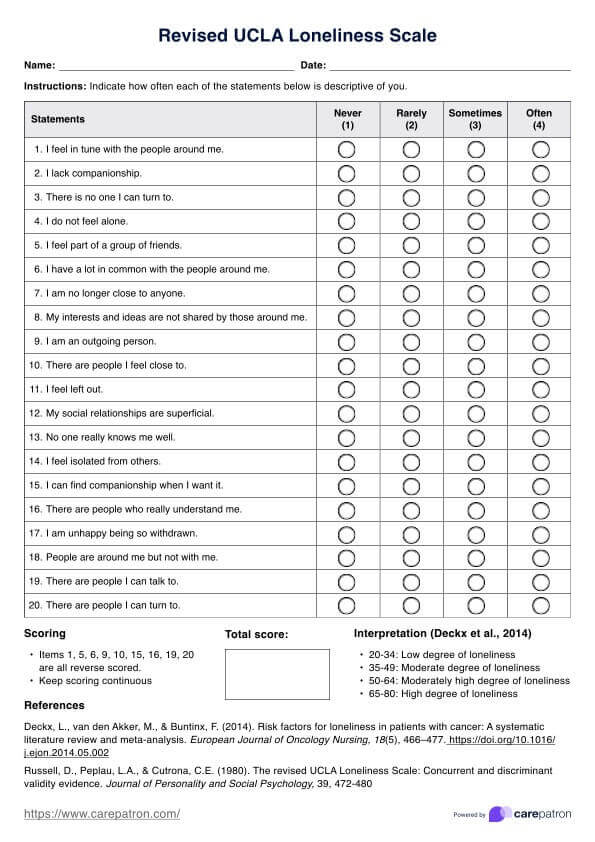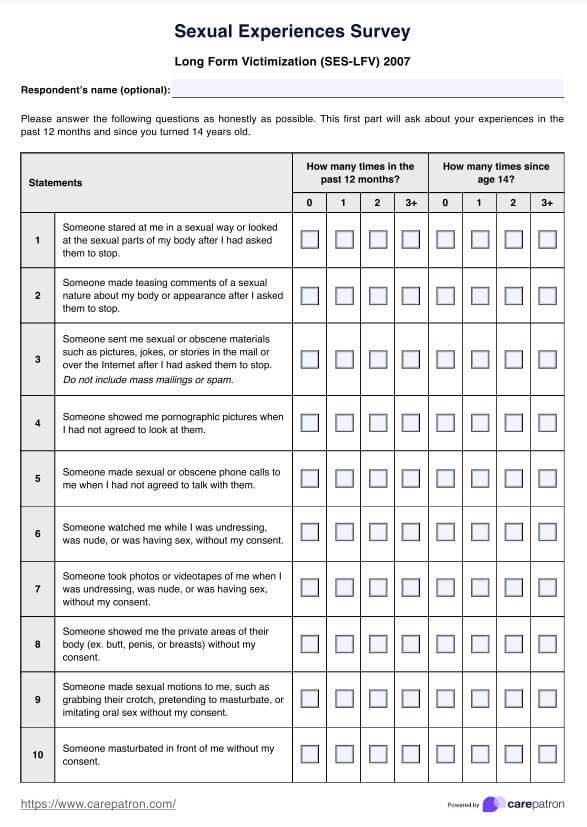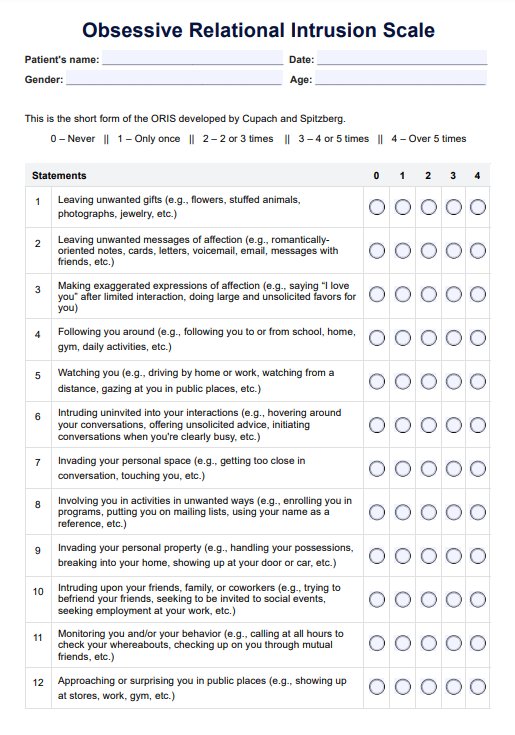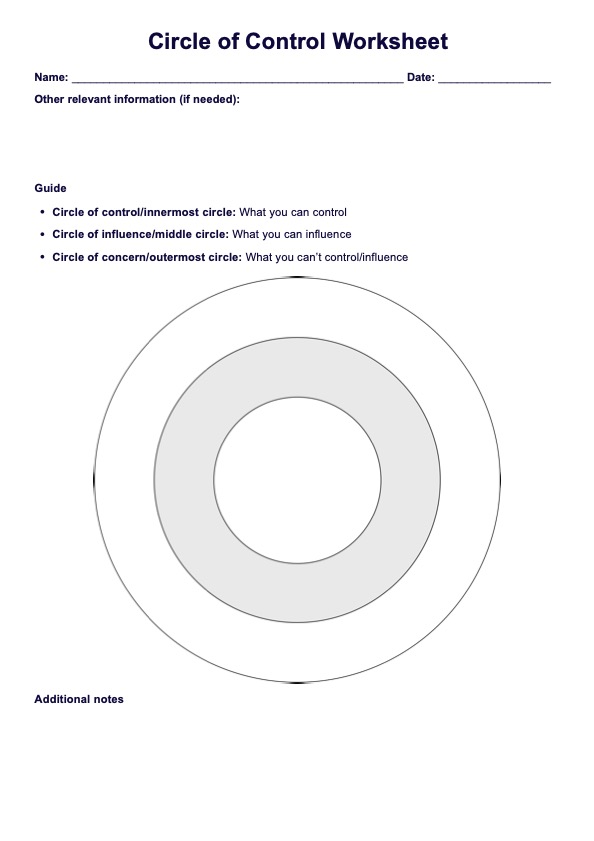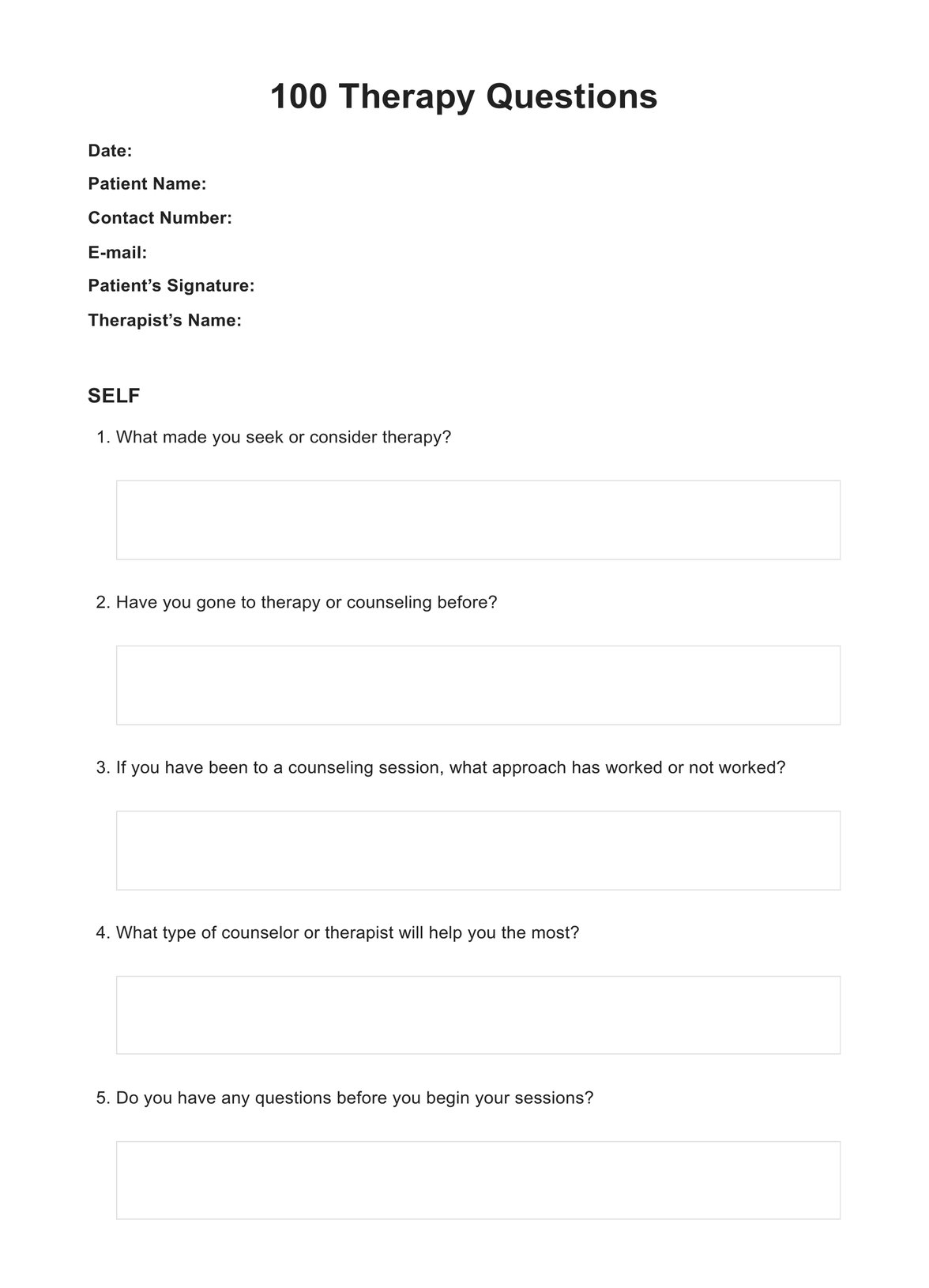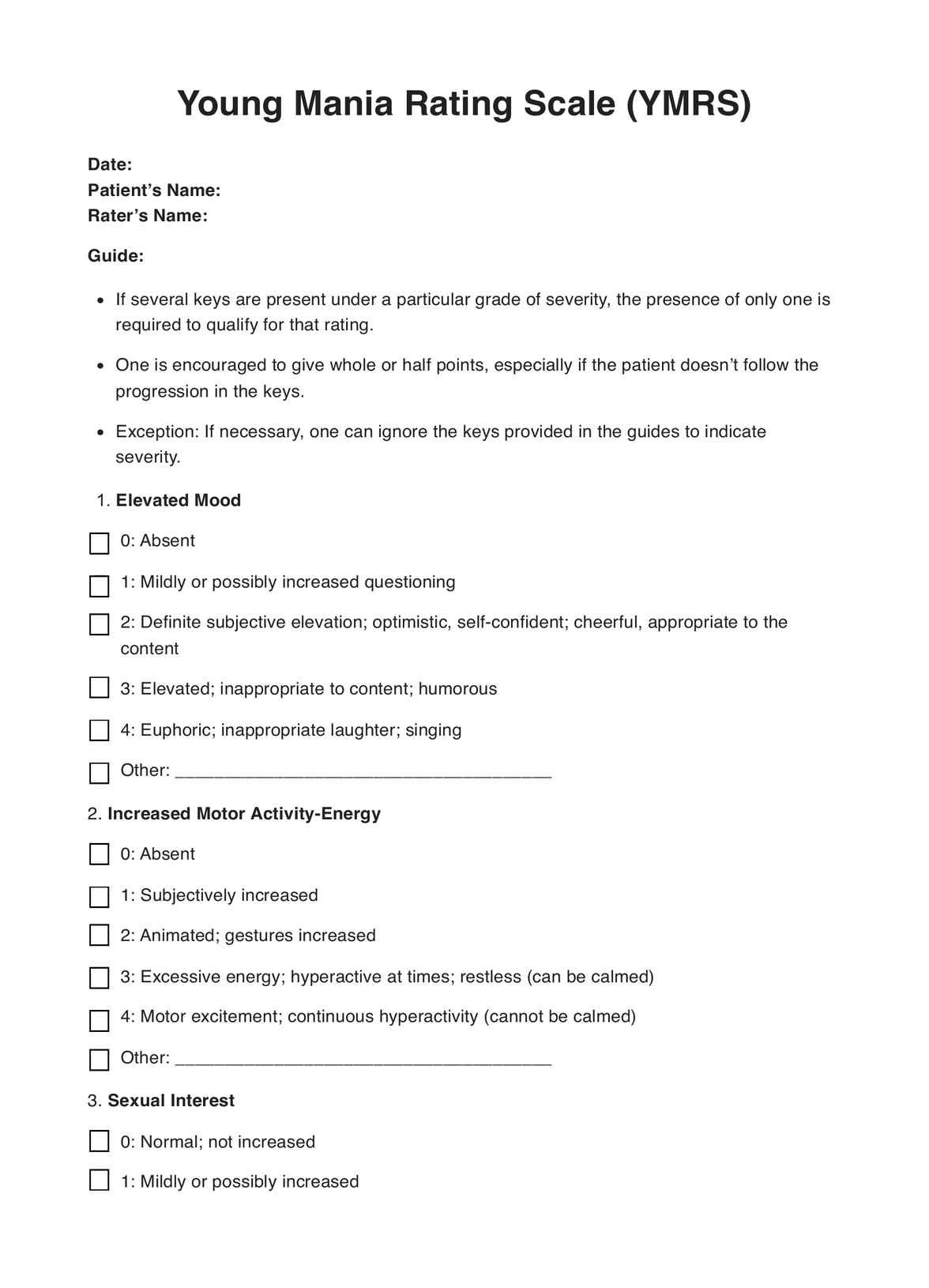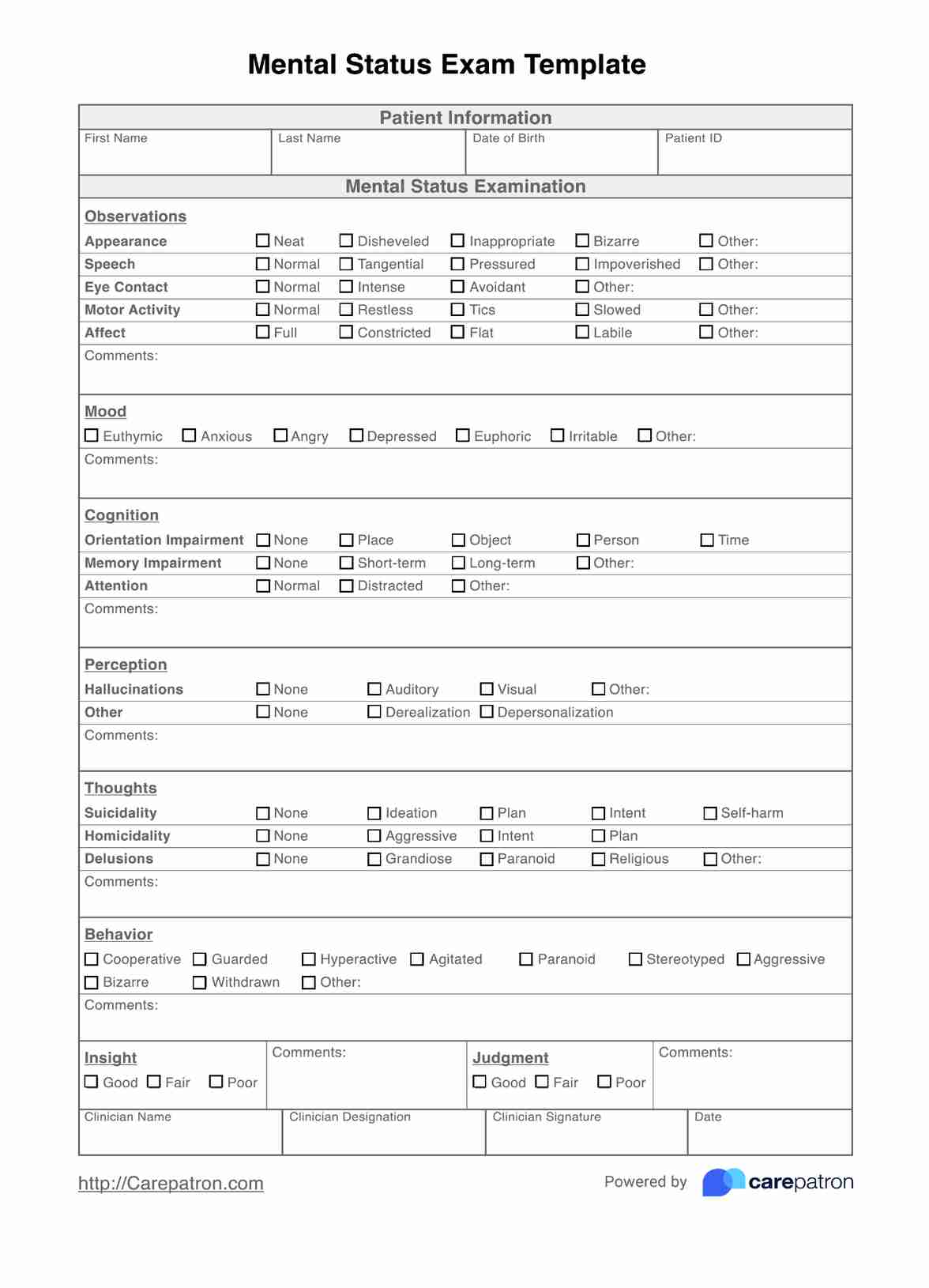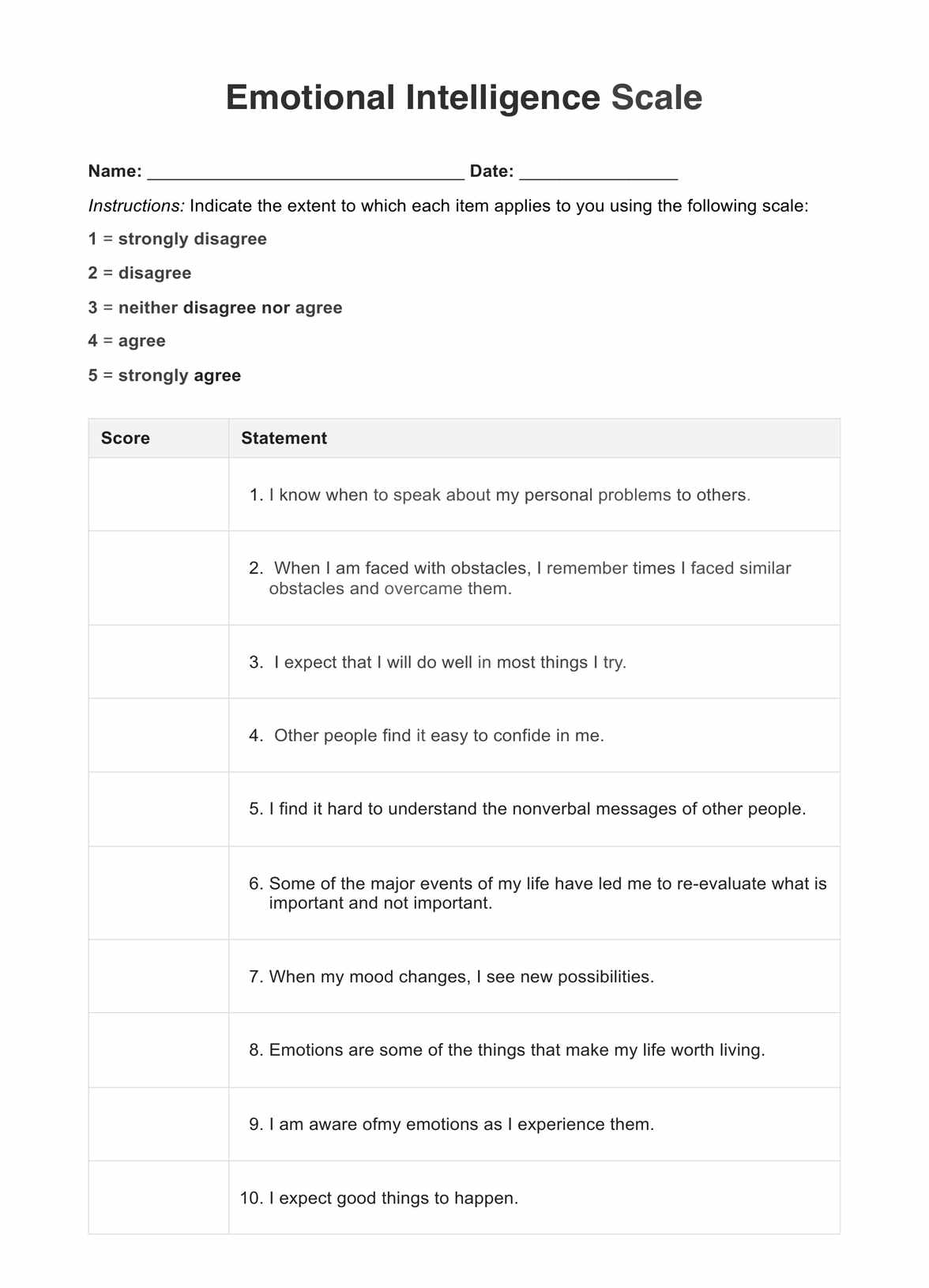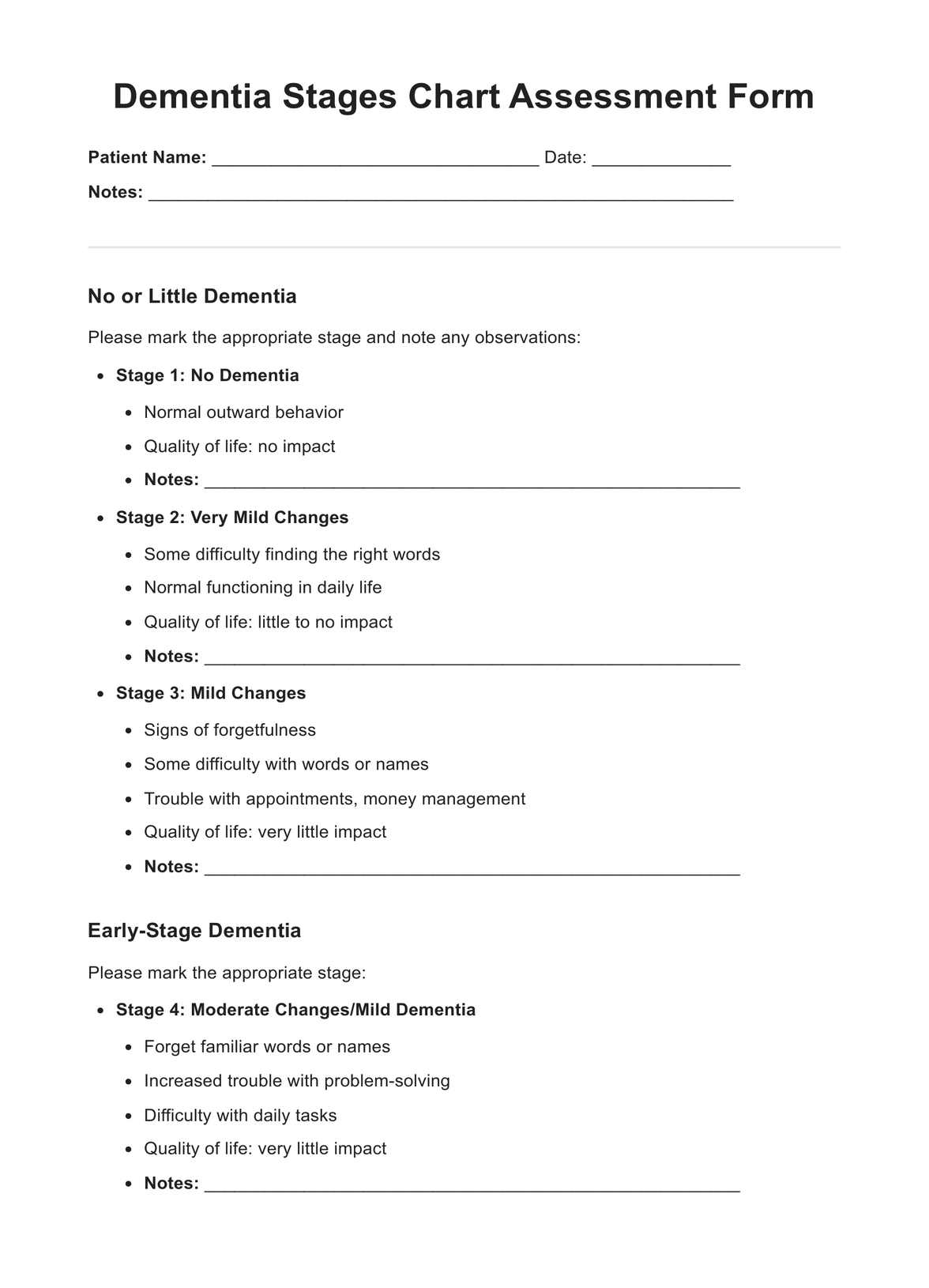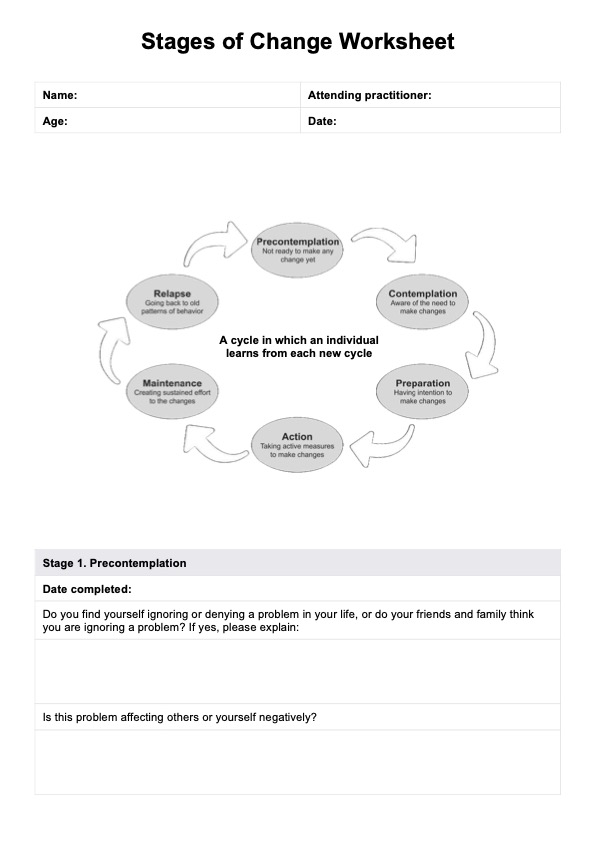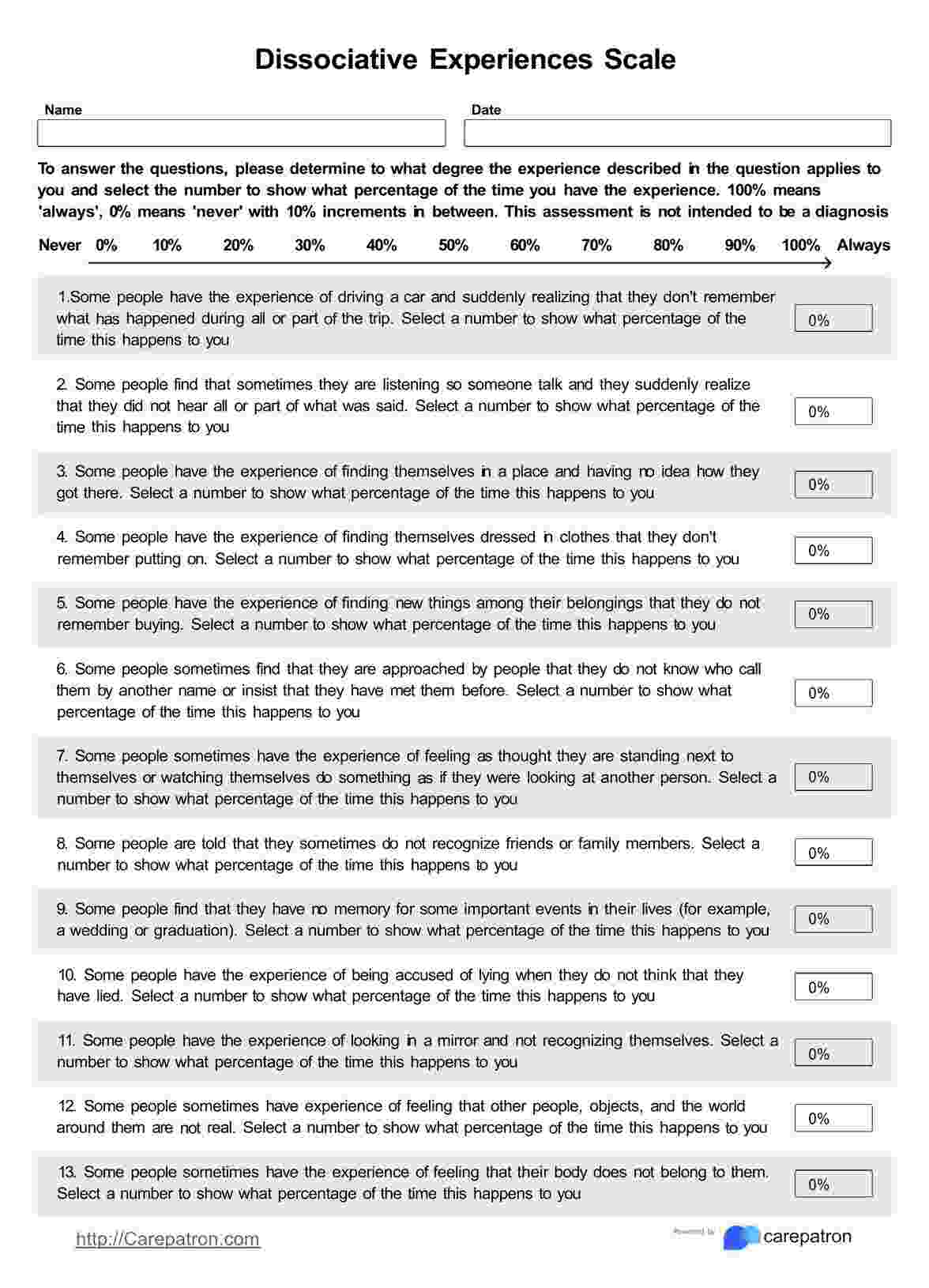Bipolar Treatment Plans
Bipolar Treatment Plan is a document that guides mental health experts in managing Bipolar Disorder. Download this PDF to level up your clinical practice.


What Is A Bipolar Treatment Plan?
It is a document that can guide mental health professionals in managing bipolar disorder. A long-term treatment plan for bipolar disorder is typically necessary, and it frequently entails medication, psychological counseling, and lifestyle changes.
Being a chronic mental health illness, bipolar disorder is ongoing and requires careful management your entire life. Bipolar disorder's mood swings can become highly disruptive and crippling, interfering with our daily lives.
This document will help direct the necessary actions in attending to patients with bipolar disorder. It is important to understand which type of bipolar disorder is being attended to. Each type has its own necessities which need strict attention.
A deeper understanding and good education about this disorder are needed to fully have control in managing the disorder and administering this treatment plan. It seeks to guide both the mental health expert and the patient.
With this document, Bipolar Disorder management will be organized and structured. This shall cover 3 different aspects:
- Bipolar Disorder Type
- Management Type
- Treatment Type
Treatment plans in healthcare ensure accountability and efficiency by organizing appointments and addressing patient concerns. You can also check our customizable treatment plan template that enhances service quality, delivering consistent, high-quality solutions tailored to your practice.
Bipolar Treatment Plans Template
Bipolar Treatment Plans Example
How To Use This Bipolar Treatment Plan
Step One. Download the PDF
You must first download the treatment plan template. The link on this page will allow you to do this for nothing. You can click inside the available text boxes and start typing because this document is interactive.
Step Two: Gather the patients’ data.
Complete the part that is required for the patient's basic information. Before moving on to the next section, be sure to finish this one.
Step Three: Conduct an Interview.
Listen to the story of the patient. If the situation permits, use questions that will not trigger the patient. If the patient cannot answer the questions, gather the background information from the support group/individual in their company.
Step Four: Decide on structured management.
The patient's needs will determine the therapy strategy. To make the section more organized, specify the necessary steps in each one. Schedule frequencies and timeframes. Indicate a prescription if one is required.
Step Five: Store the document appropriately.
Save a copy of the template after you've completed filling it out for your clients. Finally, keep in mind that the treatment plan will probably change as your patient's condition improves, so be careful to securely store a duplicate of it for future use.
When Would You Typically Use A Treatment Plan For Bipolar?
Here are some instances when to use a Bipolar Treatment Plan:
Diagnosis of bipolar disorder: The first step in using a Bipolar Treatment Plan is to have a formal diagnosis of bipolar disorder from a qualified healthcare professional. This diagnosis typically involves a comprehensive evaluation of the patient's symptoms, medical history, and family history.
Presence of bipolar symptoms: Once a diagnosis of bipolar disorder is made, the next step is to determine the severity and frequency of the patient's bipolar symptoms. These symptoms can include mood swings, changes in energy levels, impaired judgment, and difficulty with concentration.
Impairment in functioning: Another key factor in determining the need for a Bipolar Treatment Plan is the level of impairment in the patient's functioning. Bipolar disorder can significantly impact a person's ability to work, maintain relationships, and engage in daily activities. If the patient is experiencing significant impairment, then a treatment plan is necessary.
Risk of harm to self or others: If a patient with bipolar disorder is at risk of harming themselves or others, then a Bipolar Treatment Plan is necessary. This can include suicidal thoughts or behavior, as well as aggression towards others.
Co-occurring disorders: Bipolar disorder often co-occurs with other mental health disorders, such as anxiety or substance use disorders. If the patient has co-occurring disorders, then a comprehensive treatment plan that addresses all of their mental health needs is necessary.
Who Can Use this Printable Bipolar Treatment Plan?
The mental health umbrella is broad, meaning that any healthcare practitioner who meets with patients suffering from depression can benefit from incorporating these treatment plans. This also pertains to professionals who see patients with varying degrees of depression, such as major depressive disorder, and seasonal depressive disorder, amongst others.
Even if the patient is only suspected of a depression mental health diagnosis, with no official disorder, the treatment plan can be used to help those experiencing a negative state of mind that is beginning to impair their daily functioning. As a result, this treatment plan caters to many professionals, including the following:
Psychiatrists
Psychiatrists are medical doctors specializing in diagnosing and treating mental health disorders, including bipolar disorder. They can prescribe medication and manage the patient's overall treatment plan, including a Bipolar Treatment Plan.
Psychologists
Psychologists are mental health professionals who specialize in assessing, diagnosing, and treating mental health disorders. They may use psychotherapy, such as cognitive-behavioral therapy (CBT), to help patients manage their bipolar disorder symptoms as part of a Bipolar Treatment Plan.
Clinical Social Workers
Clinical social workers provide counseling services and may also use psychotherapy as part of a Bipolar Treatment Plan. They can work with patients to develop coping strategies, provide support, and help connect them with community resources.
Mental Health Counselors
Mental health counselors provide individual, couples, and family counseling services to individuals with mental health disorders, including bipolar disorder. They can use evidence-based therapies such as CBT or interpersonal therapy to help manage symptoms as part of a Bipolar Treatment Plan.
Why Is This Assessment Popular With Bipolar Practitioners?
Here are some reasons why Bipolar Treatment Plans have become popular among therapists:
Evidence-based approach
Bipolar Treatment Plans are based on evidence-based practices that effectively treat bipolar disorder. This means that therapists who use a Bipolar Treatment Plan can have greater confidence that they are using treatments proven to work.
Comprehensive care
A Bipolar Treatment Plan typically includes a range of treatments, such as medication management, psychotherapy, and lifestyle changes. By taking a comprehensive approach to treatment, therapists can help patients manage their symptoms more effectively.
Individualized treatment
A Bipolar Treatment Plan is tailored to the specific needs of each patient. This means therapists can work with patients to develop a treatment plan considering their unique symptoms, preferences, and goals.
Collaborative care
Bipolar Treatment Plans typically involve a team of healthcare professionals, including psychiatrists, psychologists, and other mental health professionals. This collaborative approach can lead to more effective and coordinated care for patients.
Improved outcomes
By using a Bipolar Treatment Plan, therapists can help patients achieve better outcomes, such as improved symptom management, increased quality of life, and better functioning.
Benefits Of Free Bipolar Treatment Plan Template
A comprehensive treatment plan for bipolar disorder aims to relieve symptoms, restore your ability to function, fix problems the illness has caused at home and at work, and reduce the likelihood of recurrence.
Here are some of the benefits of using a Bipolar Treatment Plan Template:
- A Bipolar Treatment Plan provides a comprehensive approach to treatment, including medication management, psychotherapy, and lifestyle changes.
- It is tailored to the specific needs of each patient, leading to a more personalized and effective approach to treatment.
- The collaborative care model involving a team of healthcare professionals leads to more effective and coordinated patient care.
- A Bipolar Treatment Plan is based on evidence-based practices, providing mental health professionals with greater confidence in using treatments that have been proven to work.
- Using a Bipolar Treatment Plan can help patients achieve better outcomes, such as improved symptom management, increased quality of life, and better functioning.
In summary, a Bipolar Treatment Plan is a valuable tool for mental health professionals in treating patients with bipolar disorder. It provides a comprehensive, personalized, collaborative, evidence-based approach to treatment, leading to improved patient outcomes.
Commonly asked questions
A mental health professional typically works with the patient to develop a Bipolar Treatment Plan. This involves a thorough assessment of the patient's symptoms, preferences, goals, and input from other healthcare professionals as needed. The plan is then reviewed and updated regularly as required.
A Bipolar Treatment Plan typically includes medication management, psychotherapy, and lifestyle changes. It also involves regular monitoring of symptoms and progress and collaboration with other healthcare professionals.
Yes, a Bipolar Treatment Plan can be modified as needed. It is important to regularly review and update the plan to ensure that it effectively meets the patient's needs and goals.


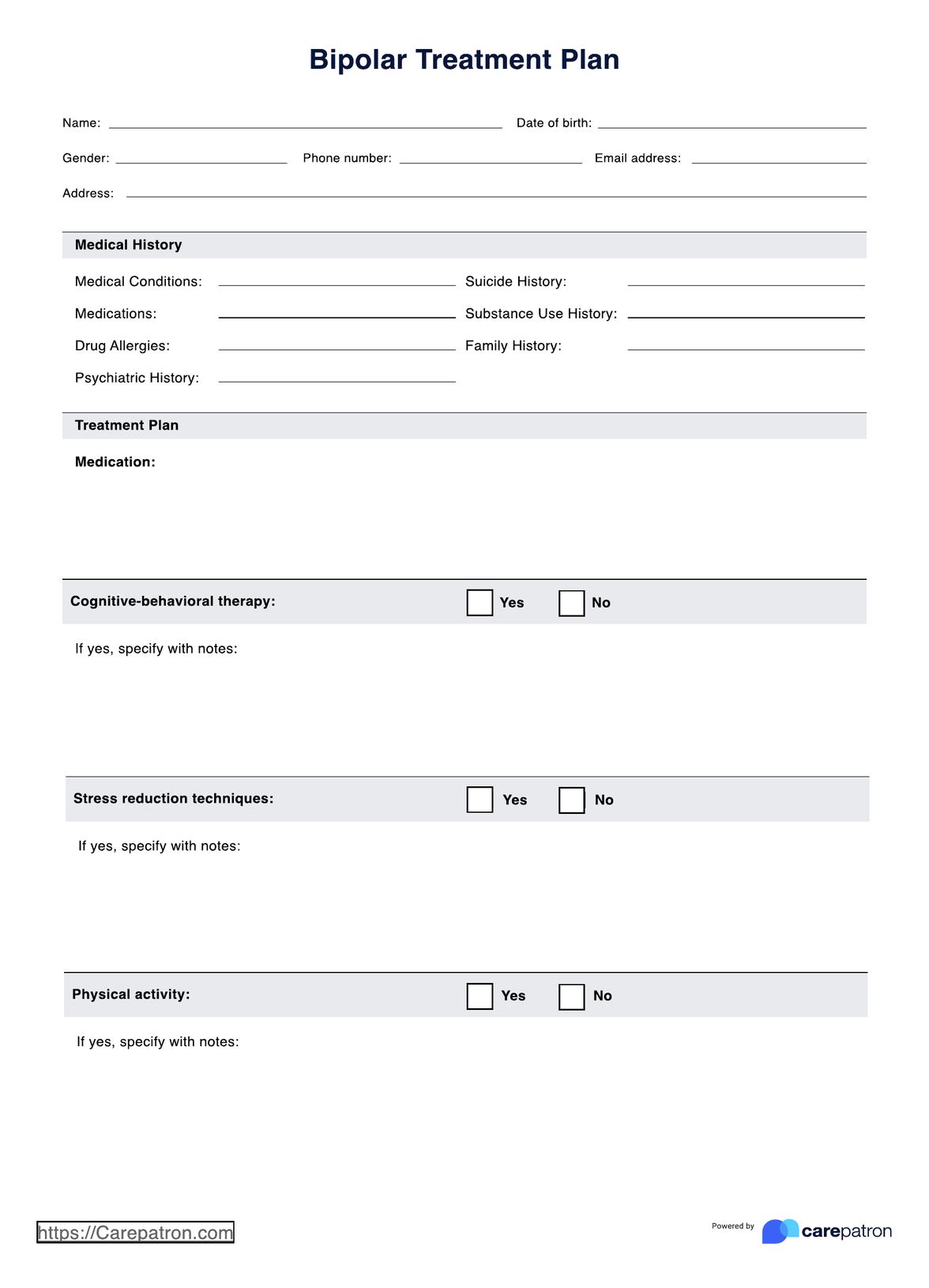
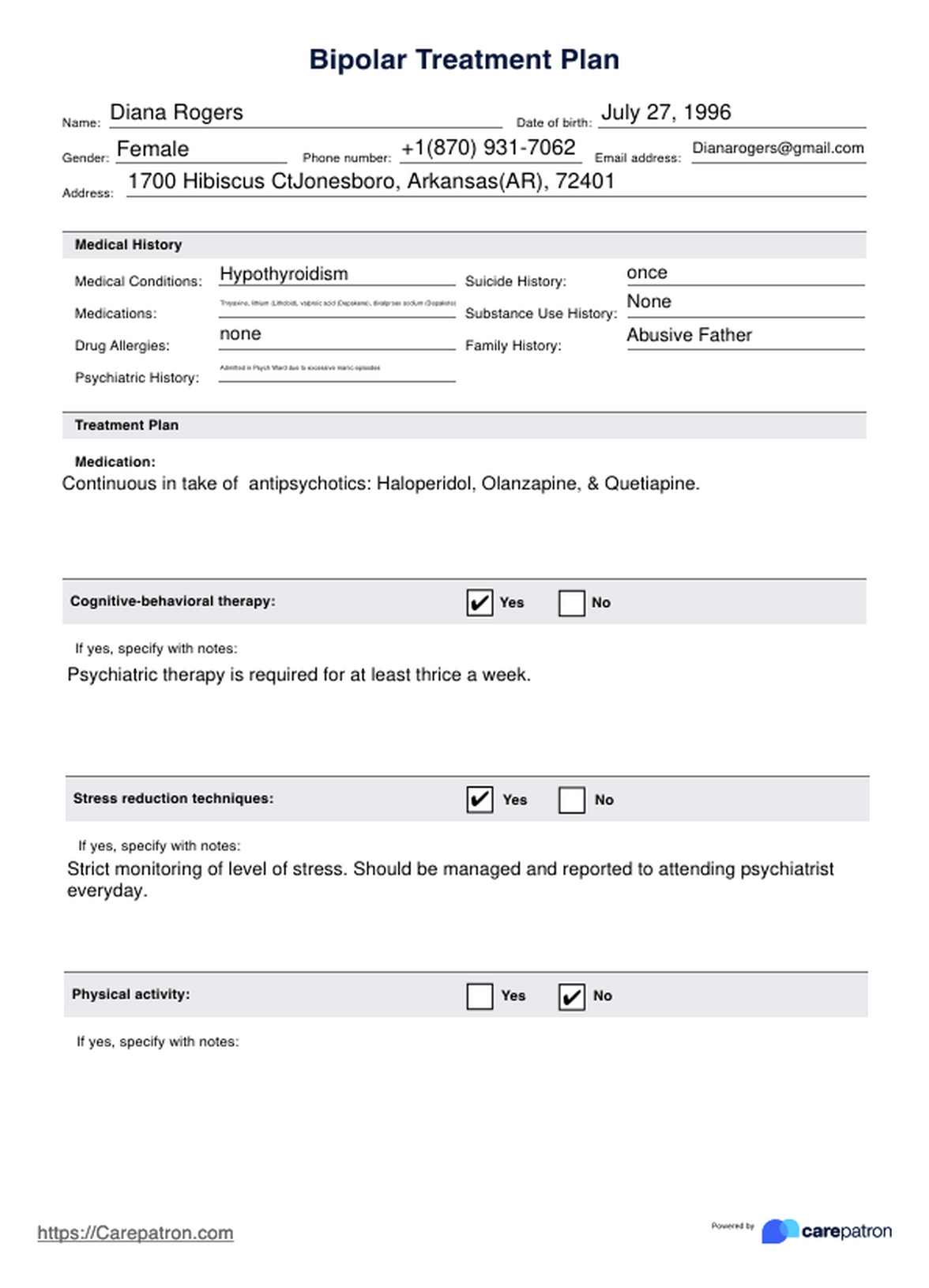

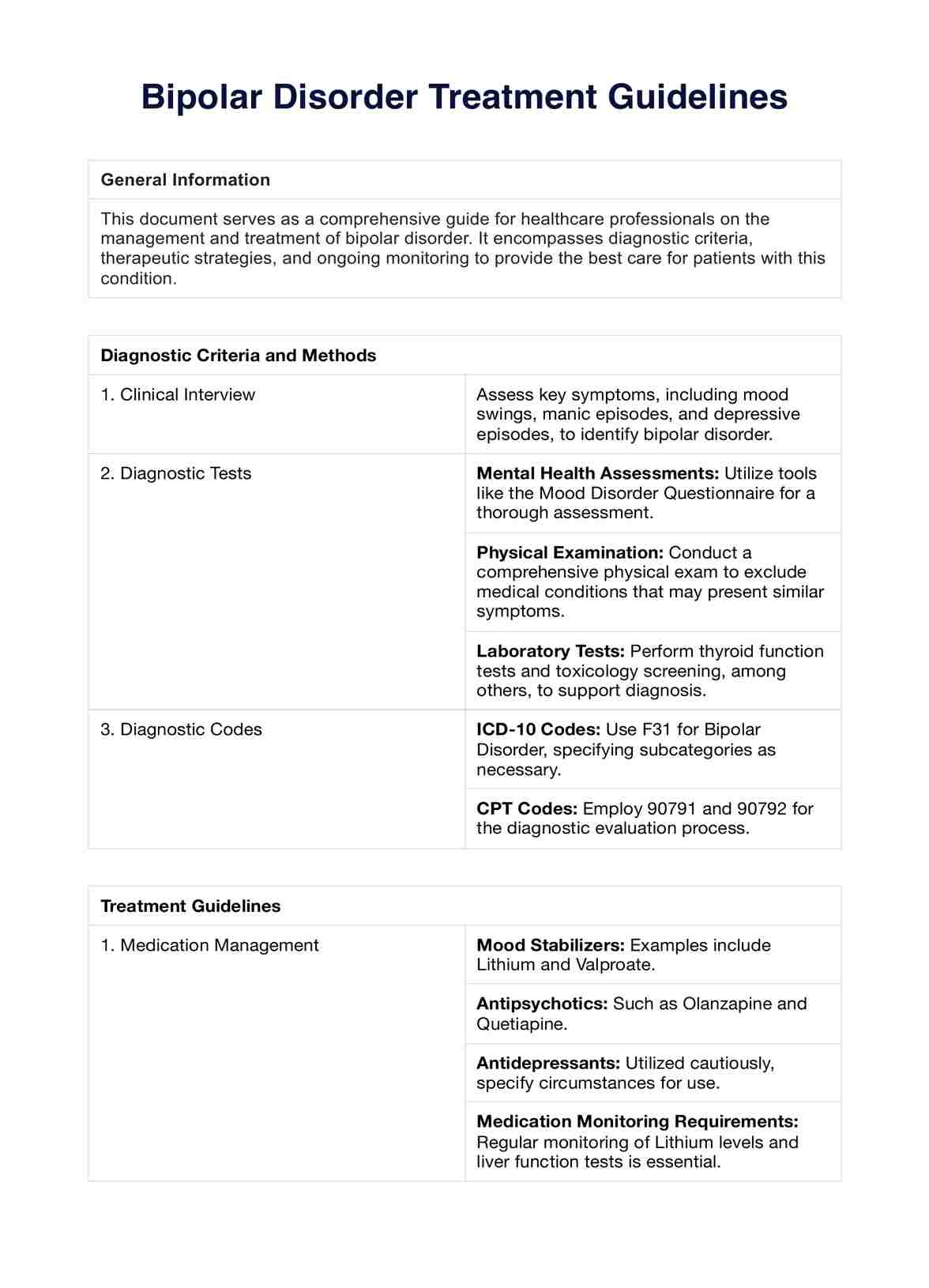
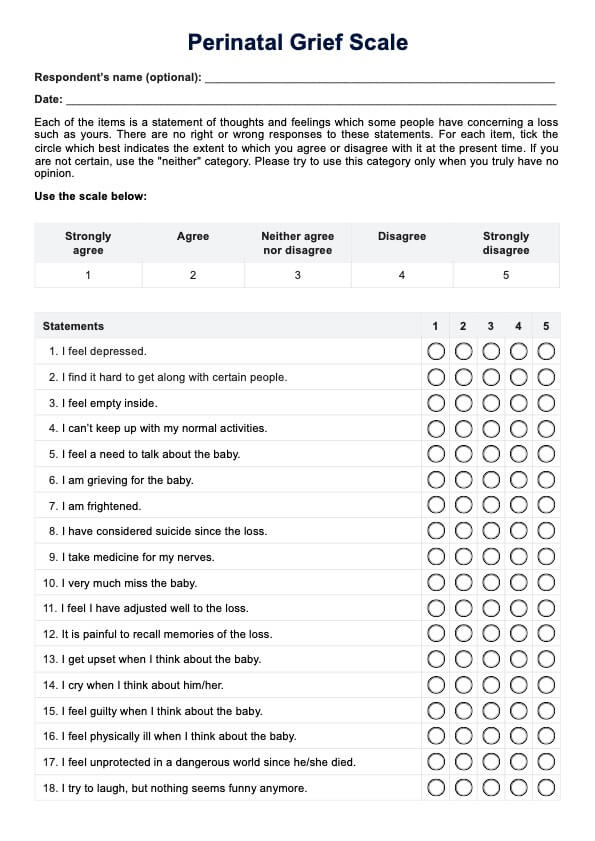
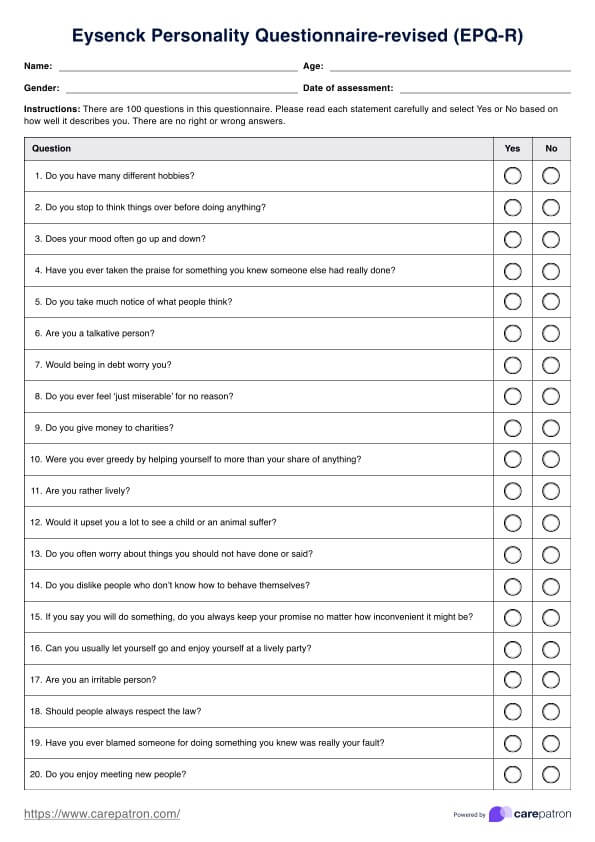
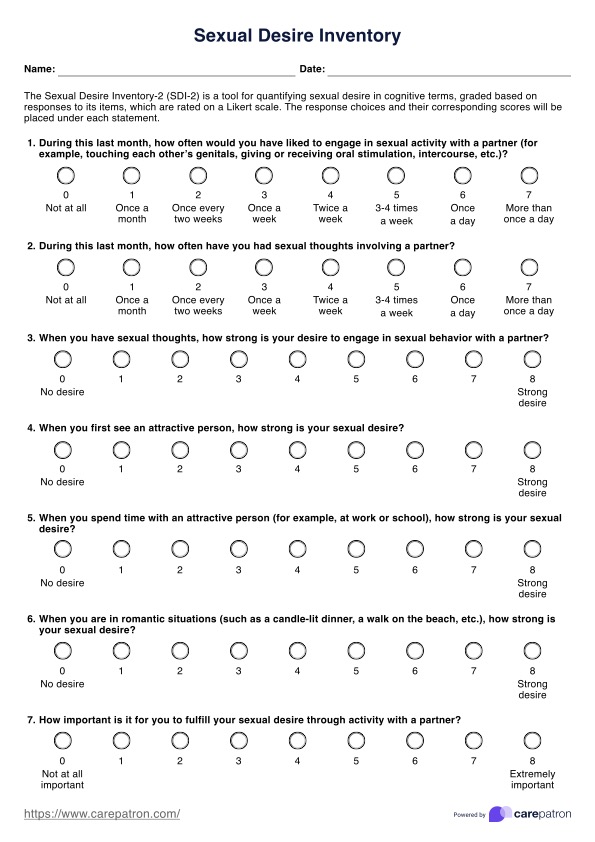











-template.jpg)


















































































